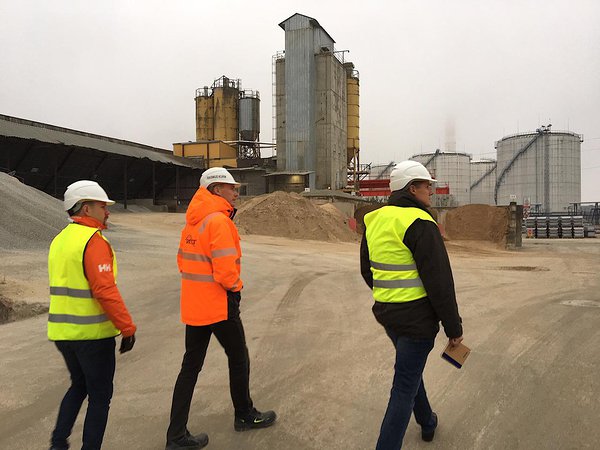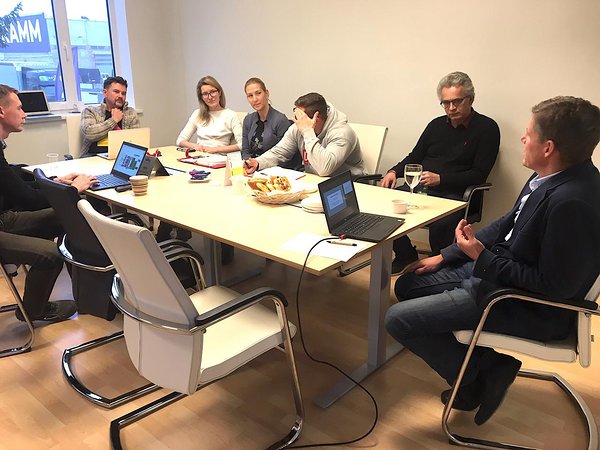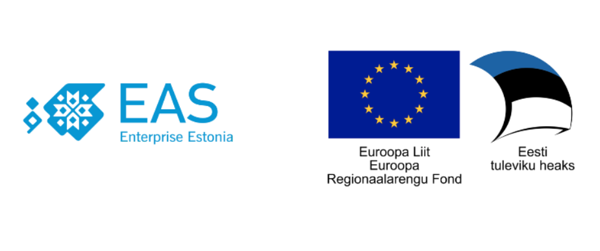Framm and circular design audit
Creating a green brand image
for the concrete manufacturer Framm AS
The concrete manufacturer Framm, who operates in the relatively resource-heavy sector of construction materials, stands out with its vision of an environmentally friendly and sustainable workplace.
Framm has started introducing an in-house sorting system for manufacturing and domestic waste, and at the end of 2019, they underwent a comprehensive circular design audit led by circular economy expert Harri Moora and service designer Kaarel Mikkin. The aim of the audit was to map the company’s situation at that point in time and find out which aspects of circular design could be applied at the various stages of the company’s life cycle. First, the company wants to significantly reduce its ecological footprint (by being a manufacturer whose brand image is green), and second, it wants to be ready to adapt any legislative changes that will be affecting manufacturing companies in the future.
Photo: Kelli Turmann, Rasmus Kurm, Maire Toomberg, Doris Henning, Harri Moora, Kaarel Mikkin
The work revealed a general supply chain issue that tends to be prevalent in the industrial sector – people seem to think that if a product has no packaging, is made from manufacturing scrap or uses less material, it must be cheaper. So if manufacturers wanted to give end customers a green brand or a brand with a smaller environmental impact, then as producers, they should lower their profit margins even more despite strong international competition. In reality, reinventing a brand as green means the manufacturer has to make large investments and work harder to reorganise the manufacturing processes, the entire supply chain, and the product development side, and start using new technologies. For example, if Framm transported its concrete elements free of plastic packaging, the receiver would have to wash them before use, which would create alternative costs. The same with manufacturing scrap – reusing scrap and making it into new products means a disturbance in a company’s everyday operations. It carries the risk of disrupting routine work and the current business model, which has already proven itself.
Photo: Observational analysis in the manufacturing complex.
In light of this, industrial companies find it an enormous challenge to move from linear economy (take, make, dispose) to circular economy. The environmental politicians in Europe are aware of the situation and want to introduce as many measures as possible to support the sustainable operations of European manufacturing companies. The circular design audit is one of the supporting measures implemented this year. It helps companies define the areas where change is the easiest to achieve, where environmentally friendly principles are the easiest to introduce, and where the changes made would have the greatest impact.
The Framm circular design audit comprised an observational analysis, interviews with the management, and a workshop with the employees. The audit revealed many nuances that cannot be made public because the company’s competitive edge has to be protected. However, we can say that the management board of the company received specific guidance on how to achieve change through appreciating input material, making the production process more economical and resource-efficient, reducing the amount of scrap, and reusing scrap to make new products.
Photo: Workshop with the employees.
Framm’s lawyer Maire Toomberg says the Estonian Design Centre completed a comprehensive circular design audit at Framm, led by circular economy expert Harri Moora and service designer Kaarel Mikkin. The audit resulted in feedback to the efforts the company had made so far as well as thoughts on how to move forward. Entering the circular economy model is definitely a challenge for industrial companies, since providing a green image means making large investments in the manufacturing process, reorganising the entire supply chain and product development, and introducing new technologies. Man-made climate change, the mass destruction of natural resources and habitats, the ever-growing mining industry of natural resources and the subsequent lack of resources, etc. have led to a situation where carbon-neutral economies and circular economies have to be the new norm in the future. New directives mean these policies will reach each and every one of us. At the end of 2019, the European Commission presented the ambitious European Green Deal. One of its subsections deals with coming up with sustainable industry measures based on circular economy.
The circular design audit was co-financed from the European Regional Development Fund through Enterprise Estonia.
Kelli Turmann
Head of Entrepreneurship and Innovation Estonian Design Centre
_block.jpg)


